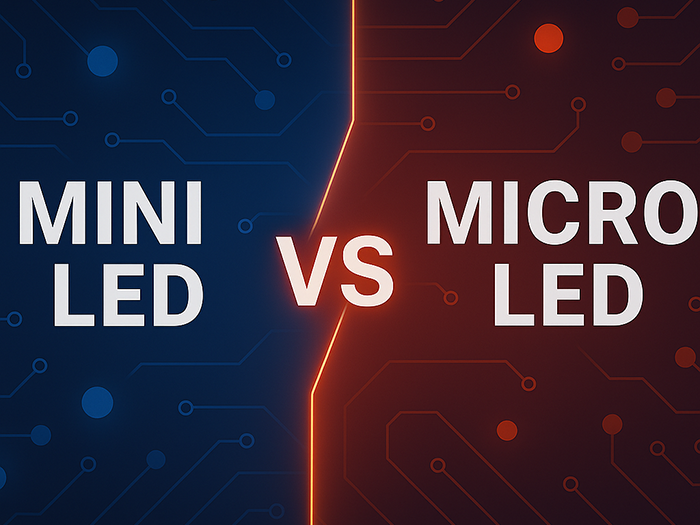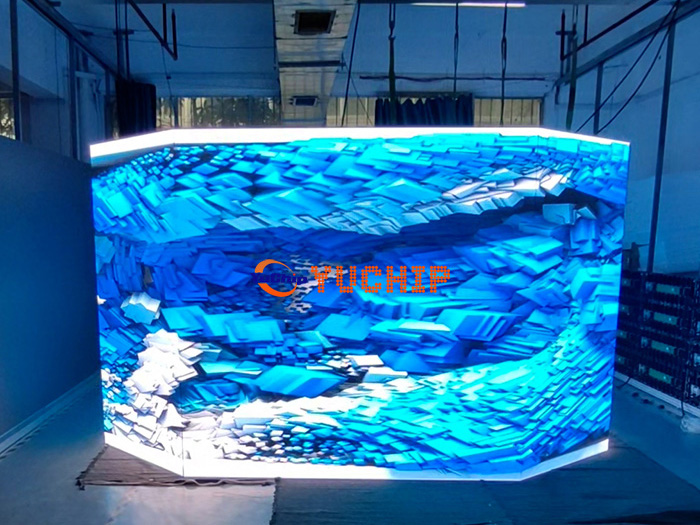Now What?
To choose which pixel pitch is best for your project, you must know where and how to use it. Is it for home use or outdoor or indoor advertising? If it’s for advertising, you have to identify your audience; who needs to see it?
In every project, you need to know your prospect and purpose first, so it’ll guide you accordingly. Now let me lay down choices you can ponder on.

Ideal types for home use are LEDs with lower pixel pitch. Its vivid color and HD resolution designed for indoor use make it favorable for closer watching distance.
You can choose from these pixel pitch ranges; P6, P5, P4, P3, P2.5, P2, P1.92, P1.875, P1.56, P1.25, P0.5, and P3.91, P2.97, P2.8, P2.6. These pixel pitches allow you to advertise products and services in a creative and eye-catching way.
Outdoor advertising utilizes vast LED screens, which means a higher range. You can choose among these; P2.5, P3, P4, P5, P6, P6.67, P8, P10, P16, and P2.97, P3.91, P4.8.
You can also see Outdoor LEDs as billboards and signage boards that promote products and services in a big setup.
One last thing to note is that the lower the pixel pitch LED screens, the higher the resolution and the higher the price. So if you’ve come up with options, consider the most favorable that suits your purpose and your budget.
Pixel Pitch: Everything You Need to Know
1. What Is A Pixel Pitch In LED?
Pixel Pitch, also known as pitch or dot pitch, describes the physical distance between the center points of LED pixels/clusters on an LED module.

Millimeters (mm) is the universally accepted unit to measure the pixel of an LED display. In context, you will hear someone say, “The pixel pitch of this LED screen display is 2.5mm.” It means the vertical and horizontal distance between every LED pixel is 2.5 millimeters.
The smallest unit of the LED Display is called a pixel. Every LED screen on the market has an array of pixels that light up with different intensities and colors, creating visible letters, images, graphics, animations, and video displays on the screen.
Therefore, the pitch directly correlates with the clarity and quality of projected images.
2. How Is Pixel Pitch Related To Screen Resolution?

To put it simply, the lower the LED pixel pitch, the better or higher the resolution quality. And higher is equivalent to a lower resolution. Lower one means higher pixel density; thus, there are more LED clusters in one LED screen. More pixels also mean better visual performance because more LEDs are lighting up to flash your images or videos.
It is why many retail owners, business persons, and advertisers prefer LED displays with lower pixel pitches because they are ideal for indoor LED video walls.
Therefore, if your Display requires high LED display resolution, go for a smaller pixel pitch. But if the screen resolution is not a primary concern, an LED screen with higher pixels will do.
3. What Is The Size Of A Pixel Pitch? How Is It Calculated?
Knowing the LED pixel pitch of the LED display screen is all you need to calculate the distance (or pixel density) between two centers of two LED pixels.
It is usually in (capital) P + (distance in millimeters). For instance, if an LED display has a 2.5mm pixel pitch, it will be written as a P2.5-pixel pitch.

4. What Is Considered A Good Pixel Pitch?
For indoor installation, the recommended pitch for your LED monitor may range from 1.00mm to 4.00mm.
For outdoor installation, 4.00mm to 10mm and up LED wall pixel pitches are most preferred.
5. How Is It Related To Viewing Distance?

To correctly identify the suitable LED video wall for your store’s needs, you must first identify the viewing distance of the audience from the screen. Lower LED pixel pitches are best for close viewing displays. On the contrary, LED displays with higher dot pitches are ideal for far viewing distances.
So how would you determine the minimum and maximum viewing distance for your LED video screen? There are several theories and guidelines on the correct ratio and measurement of the LED screen for a particular viewing distance. But the most perennial formula that you can find on the internet to compute the optimal viewing distance (in meters) is by dividing the LED pixel pitch by 0.3 and 0.8.
For example, a P4 LED screen has an optimal viewing distance of 5 – 13 meters.
4 mm / 0.8 = 5 meters
4 mm / 0.3 – 13.3
Other LED experts have claimed that for every 1 mm, it is suitable for up to 8 feet viewing distance. For example, a P3 mm LED screen is good for up to 24 feet or 7 meters viewing distance.
6. Are The Lowest Pixel Pitches Always The Best Choice?

While it is true that resolution matters a lot in any digital visual presentation and video, choosing the screen with the highest resolution (or lowest pixel pitch) is not always the smartest choice.
Smaller LED pixels are often more expensive and high maintenance. If you’re planning to install your LED video walls outdoors and your target viewers are motorists and passersby from far distances, installing an LED video display with a small pixel pitch value might not be a good idea.
So, to obtain the best possible outcome for your LED display investment, you need to consider other things like viewing distance, your budget, and the installation location.
7. What Is The Best Pitch For My Needs/Requirements?

The answer to this question is relative, depending on the complexity of your visual displays.
If your goal is to showcase visuals loaded with effects and colors, you may choose a lower pixel pitch so that the screen can give justice to your media content.
Otherwise, if you will only use it to display static or plain content with minimal effects, animations, and colors,
Your Take-Away:
For complicated visual graphics and animation: Lower PP
For less complex contents like text and simple logo: Higher PP
Other Factors:
Indoor installation: Lower PP
Outdoor installation: Higher PP
Close viewing: Lower PP
Far viewing distance: Higher PP
8. What Happens If I Choose A Wrong Pixel Pitch For My LED Wall?
Purchasing and installing an LED video wall with the wrong pixel pitch may cause the following consequences:

- It can cause viewing discomfort to your audience
- It can cost you more money than it should.
- You may not get the performance you are expecting.
- Your visual displays may appear weak or unnoticeable.
- It might not help you promote your business at all.
Before making a purchase, it is essential for you to carefully examine which LED screen is most cost-effective and most suitable for your business needs and display requirements.
It focuses not only on which screen has the best solution nor which one is most cost-saving. The ideal solution for any LED display needs is always a combination of both.
If you need assistance selecting the LED screen pixel for your next project, please feel free to contact us.
Also, here are links you may follow/visit.
- YUCHIP’s P4.8 Outdoor And Indoor Rental LED Display In Austria
- How LED Wall Technology Revolutionizes The Film Industry
- The Top LED Screen Suppliers In The UK
- P3.91 Indoor LED Display In Xiamen: A YUCHIP’s Project
- COB LED Screens Are Revolutionizing The LED Industry
- Top LED Display Suppliers In South Korea
- Top 10 LED Screen Suppliers In Australia
- Beijing Olympics 2022: Guinness World Record And Opening Ceremony
- Best LED Screen Suppliers In Ecuador
- Best LED Screen Suppliers In Uruguay
- Leading 10 LED Screen Suppliers In France
- How Much Does A 4K LED Screen Cost?
- Adhesive Transparent LED Display: Ultimate FAQ Guide
- How To Improve My LED Screen Refresh Rate?



